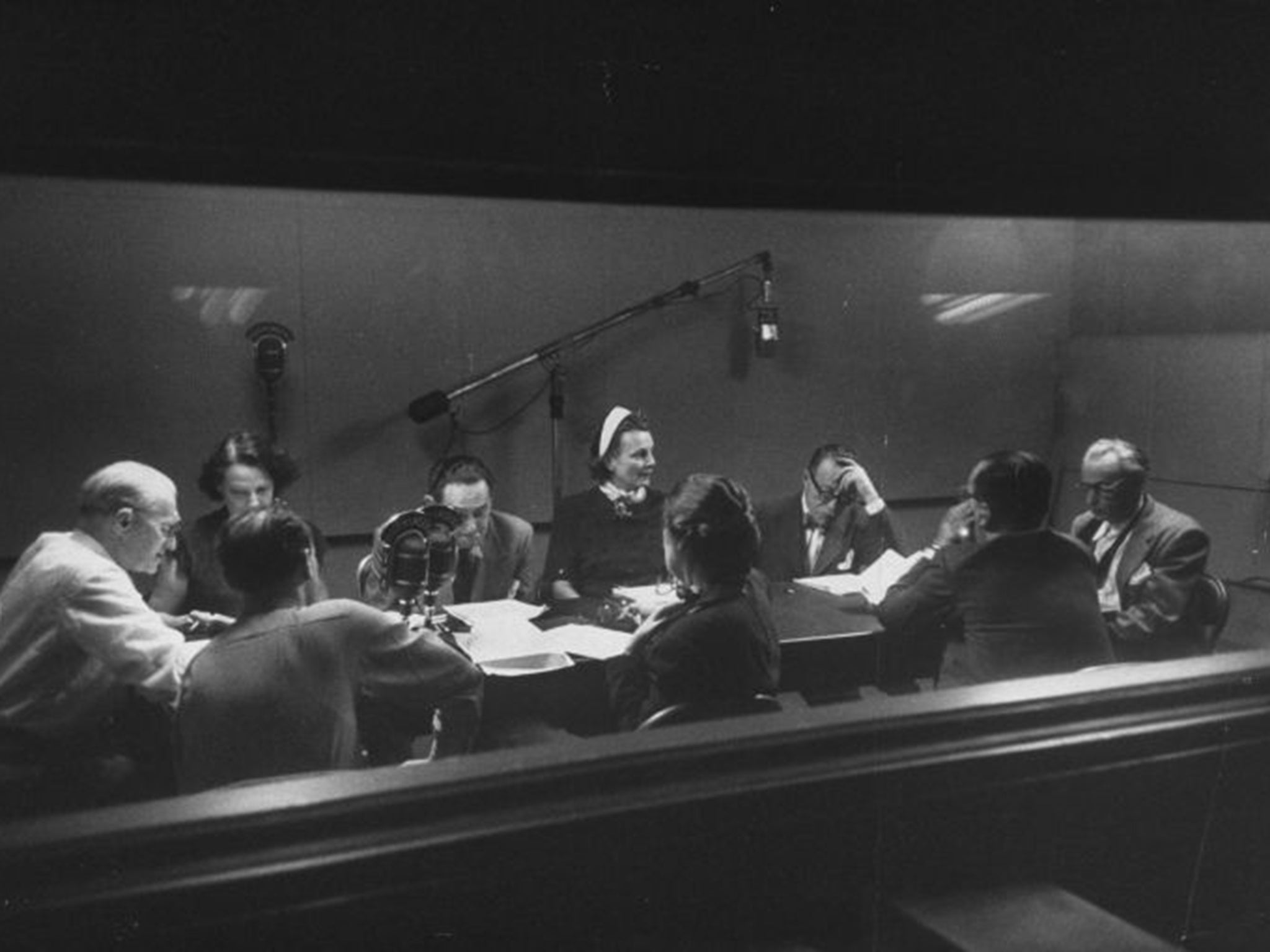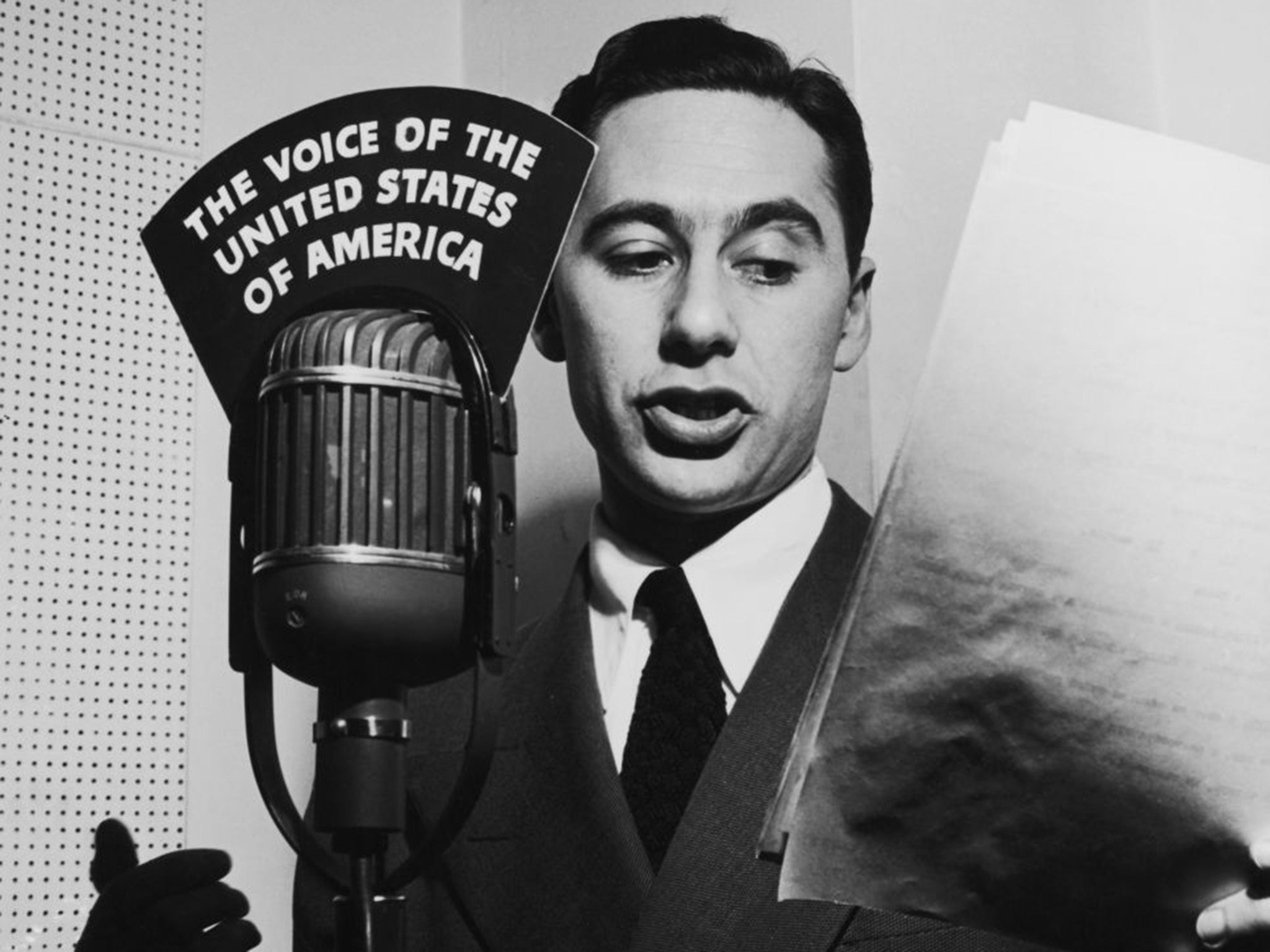Fears in the US of being outgunned in the vital propaganda wars by Russia, China - and even Isis - have prompted a rethink on overseas broadcasters
Out of America: 'Accurate, objective, comprehensive': that was Voice of America's creed, but now its masters want it to promote US policy


Pity the poor old United States of America. Its economy is vibrant (at least by comparison with sclerotic Europe). In hard military power it stands unchallenged, its defence budget more than those of the next 10 countries combined. In terms of “soft power” – the influence exerted by its culture and values – the US is scarcely less dominant.
But not so, if you listen to policymakers here. The US, they warn, is being overwhelmed by Russia and China in a gigantic propaganda battle for hearts and minds around the globe. And, for that, blame the institutions that should be in the forefront of the struggle: the government agency that oversees the job of getting the US point of view across to the rest of the world, together with its flagship brand, the Voice of America.
And events of the past couple of months would seem to bear this thesis out. First, Andrew Lack, the hardened media executive brought in to reinvigorate the Broadcasting Board of Governors (BBG) that runs the country’s international media operations, left after only six weeks. Then, just a few days ago, David Ensor resigned as VoA’s director. Four years was enough, he said, and fresh blood was needed. Some, however, suspect otherwise.
The VoA is America’s equivalent of the BBC World Service. It began life in early 1942, a few weeks after the US entered the Second World War, to counter Nazi and Japanese propaganda. “The news may be good or bad for us,” was its founding manifesto, “but we will always tell you the truth.”
In the decades that followed, other American overseas broadcasters were created: Radio Free Europe (RFE) and Radio Liberty (both originally funded by the CIA) and, later, Radio Free Asia and Radio y Television Marti, spreading the truth from its Miami headquarters to the oppressed multitudes of Cuba. But VoA was always the leader of the pack. It could not boast the heroic past of the World Service – traditionally seen as the gold standard for international broadcasters. (Full disclosure: my mother worked for the World Service during the war, a studio manager at much-bombed Bush House in her mid-twenties, helping to organise broadcasts to occupied Europe. They were, she always told me, the most thrilling years of her life.)

But, by and large, VoA stayed true to its mission and could claim at least a small part in the winning of the Cold War. In 1976, in the wake of Vietnam and Watergate, President Gerald Ford signed an updated VoA charter, declaring that the station would be “accurate, objective and comprehensive” – not a master of propaganda’s black arts but a mainstream media outlet, committed to telling it like it is.
So what has gone wrong? By objective standards, Ensor’s tenure has been a success. On a budget of $196m, barely half that of the World Service, he has lifted VoA’s worldwide audience to an estimated 172 million a week, 49 million more than when he took over in 2011. The station now operates on a full range of platforms, from radio, TV and the internet, to social media and mobile phones.
Of course, he would have liked more money; BBG and its stable have faced similar funding cuts to the World Service. However, “we don’t need to match the despots dollar for dollar”, Ensor has said. VoA’s strongest selling point, he argued, is its credibility, that it is not seen as a government poodle. During the fraught Iran nuclear negotiations, for instance, it gave Iranian listeners a full dose of Israeli Prime Minister Benjamin Netanyahu’s scathing critique of President Obama’s strategy.
But, for an America again inclined to see foreign demons behind every corner, this is not enough. The US is losing the PR war, say many on Republican-controlled Capitol Hill and in Washington’s think-tank community. For them, VoA is being hopelessly outgunned on this vital “soft power” front by Russia and China, even by those barbarous master propagandists at Isis.
To which one might say, so what? The Soviet Union waged unremitting propaganda wars, yet much good they did in the end. Some even wonder, given the huge panoply of American media that per se promotes US values and culture, whether VoA and its ilk are needed at all.
However, things have greatly changed since the 1980s. Moscow, having again stamped out dissenting media at home, now runs a far more sophisticated international operation, spearheaded by the ubiquitous RT with its glossy Western format, and Sputnik News, a new website and radio service. RT’s budget alone is put at $500m, and growing. Then there’s China’s equally polished CCTV, whose finances are an even greater mystery.
But it’s not just a matter of money. Complaints about BBG’s performance had been around for a while, but came to a head in 2014 as the crisis in Ukraine erupted – “the most serious challenge US international broadcasting has faced since the fall of the Soviet Union”, according to a recent report on the subject. For Ed Royce, the Republican chairman of the Foreign Affairs Committee of the House of Representatives, “Our nation is getting beat by Putin propaganda, and our international broadcasting is floundering. It’s unacceptable.”
Last year, the house passed a bill to replace the BBG with a new US International Communications Agency, run by a full-time director (as opposed to the BBG’s largely part-time board). The VoA would remain flagship, with RFE, Radio Liberty and the others merged into a “Freedom News Network”.
So far, so good, if a streamlined structure produces more focus and less waste. The problem lies in the bill’s requirement that the VoA and its brethren “promote US foreign policy”, and concentrate on American news and policymaking. That is propaganda by another name and, not surprisingly, VoA’s journalists hate the idea. The 2014 bill died in the Senate, but it will surely be resurrected soon. If it passes, America’s militant propagandists will be the winners. But the credibility of VoA – and the country’s – will be the loser.
Join our commenting forum
Join thought-provoking conversations, follow other Independent readers and see their replies
Comments